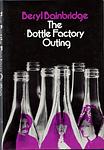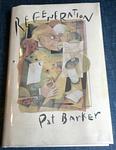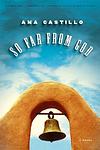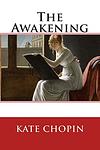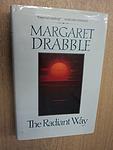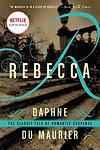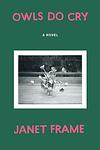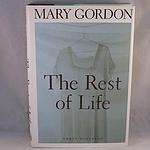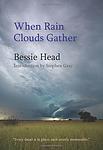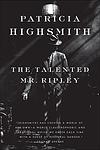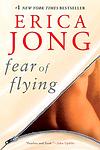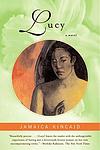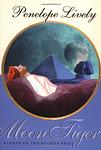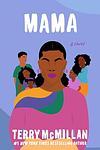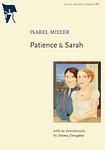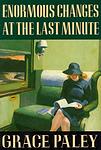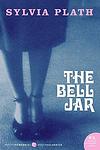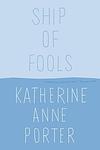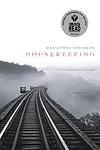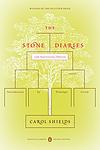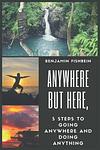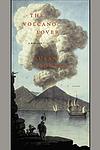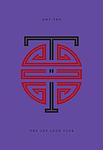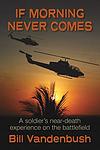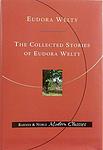100 Great 20th Century English-language Works of Fiction by Women
This is one of the 284 lists we use to generate our main The Greatest Books list.
-
Bastard Out of Carolina by Dorothy Allison
"Bastard Out of Carolina" is a poignant coming-of-age story set in South Carolina. The narrative follows the life of a young girl who, despite being born out of wedlock, strives to find her place in a world that continuously subjects her to physical and emotional abuse. The book explores themes of poverty, violence, and resilience in the face of adversity, providing a raw and unflinching look at the protagonist's struggle for acceptance and love.
-
I Know Why the Caged Bird Sings by Maya Angelou
This memoir recounts the early years of an African-American girl's life, focusing on her experiences with racism and trauma in the South during the 1930s. Despite the hardships she faces, including sexual abuse, she learns to rise above her circumstances through strength of character and a love of literature. Her journey from victim to survivor and her transformation into a young woman who respects herself is a testament to the human capacity to overcome adversity.
-
Cat's Eye by Margaret Atwood
This novel revolves around the life of a controversial painter, Elaine Risley, who returns to her hometown, Toronto, for a retrospective of her art. Haunted by her past, she reminisces about her childhood and the complex relationships she had, especially with her best friend Cordelia. The story delves into themes of memory, identity, and the often painful experiences of childhood and adolescence. The protagonist's journey is one of self-discovery, as she navigates through the complexities of female friendship, bullying, and the struggle to fit in.
-
The Bottle Factory Outing by Beryl Bainbridge
The novel is a darkly comic tale of two women, Brenda and Freda, who work in a wine-bottling factory in 1970s London. Their lives are filled with tedious work, petty squabbles, and dreams of romance. Brenda is a quiet, passive woman who is trying to escape from her abusive husband, while Freda is a large, boisterous woman who has an unrequited love for their boss. The story takes a twisted turn when a company outing to the countryside results in a murder, leaving the women to deal with the repercussions.
-
Gorilla, My Love by Toni Cade Bambara
The book is a collection of short stories that delve into the lives of African Americans, primarily focusing on the experiences of young girls and women as they navigate a world marked by poverty, racism, and gender inequality. The stories are set in both rural and urban landscapes and are characterized by their vibrant dialogue and richly drawn characters. Through the eyes of these characters, the collection explores themes of family, community, identity, and resilience, offering a poignant and often humorous look at the complexities of growing up and asserting oneself in a society that frequently marginalizes and overlooks the voices of black women and children.
-
Nightwood by Djuna Barnes
"Nightwood" is a modernist novel that explores the complex relationships and sexuality of a group of Americans and Europeans living in Paris in the 1920s. The story primarily revolves around the tumultuous love affair between two women, one of whom is a married aristocrat. The narrative, known for its poetic and dense language, delves deep into the characters' psyches, exploring themes of identity, gender, and desire. The novel is also notable for its frank and groundbreaking depiction of homosexuality and transgender issues.
-
Regeneration by Pat Barker
"Regeneration" is a historical and anti-war novel set in a mental hospital during World War I. The narrative focuses on the experiences and interactions of a psychiatrist and his patients, most of whom are soldiers suffering from severe shell shock. The novel explores themes of masculinity, identity, and the psychological effects of war, while also critiquing the societal pressures and expectations that led many men to enlist and subsequently suffer from mental trauma.
-
Hotel du Lac by Anita Brookner
The novel follows the story of a romance novelist, who, after a love affair with a married man, is sent by her friends to a Swiss hotel to recover. At the hotel, she meets various eccentric characters, including a wealthy woman and her daughter, a mysterious, wealthy man, and a couple on their honeymoon. As she observes and interacts with these characters, she is forced to examine her own life and choices, ultimately deciding whether to accept a marriage proposal from a man she doesn't love or to continue living independently.
-
Rubyfruit Jungle by Rita Mae Brown
"Rubyfruit Jungle" is a coming-of-age novel that explores the life of a young girl growing up in poverty in the American South, who realizes she is a lesbian. The protagonist is a fiercely independent and ambitious woman who overcomes societal norms and prejudices to pursue her dreams. The narrative provides an honest and humorous look at sexuality and identity, while also addressing the challenges faced by the LGBTQ+ community.
-
The Good Earth by Pearl S. Buck
This novel tells the story of a poor farmer in rural China, who struggles to survive and prosper. Over time, he manages to build a life for himself and his family, eventually becoming a wealthy landowner. However, his newfound wealth and status lead to a moral decline, as he becomes disconnected from the land that gave him everything. The narrative explores themes of wealth, poverty, and the human connection to the earth.
-
Possession by A. S. Byatt
"Possession" is a novel that interweaves two storylines, one set in contemporary times and the other in the Victorian era. The contemporary plot follows two academics who uncover a secret love affair between two 19th-century poets, while the Victorian storyline presents the clandestine romance itself. As the modern scholars delve deeper into the past, they find themselves falling in love as well, mirroring the historical romance they are researching. The book explores themes of love, passion, and the power of the written word.
-
Nights At The Circus by Angela Carter
"Nights at the Circus" is a fantastical tale set in the late 19th century, centering around a trapeze artist who claims to be a swan princess with wings. A journalist is intrigued by her story and joins the circus to uncover the truth. As the troupe travels from London to Siberia, the journalist becomes increasingly enchanted by the strange world of circus performers and his relationship with the trapeze artist deepens. The book explores themes of love, freedom, and the blurred lines between reality and illusion.
-
So Far From God by Ana Castillo
The novel is a vibrant and magical realist portrayal of the lives of a mother and her four daughters in the small town of Tome, New Mexico. Blending elements of Mexican-American folklore and contemporary issues, it tells the story of the family's struggles and triumphs, weaving in themes of cultural identity, feminism, and spirituality. The narrative is rich with the supernatural and the everyday, as the characters confront challenges such as illness, economic hardship, and personal loss, while also experiencing miraculous and extraordinary events. Through their journey, the book explores the intersection of tradition and modernity, and the resilience of women within a community.
-
My Antonia by Willa Cather
This novel follows the life of Antonia Shimerda, a Bohemian immigrant to the United States, through the eyes of her childhood friend, Jim Burden. The narrative explores their lives in the harsh environment of the American Midwest, their struggles with poverty, cultural adaptation, and personal growth. Antonia's resilience, strength, and love for life inspire Jim, who moves away for education and career but remains emotionally tied to the woman and the prairie life he left behind. The book is a compelling portrayal of pioneer life, human resilience, and the enduring power of friendship.
-
The Awakening by Kate Chopin
"The Awakening" is a novel set in the late 19th century New Orleans, which explores the life of a young woman trapped in societal and marital expectations. She embarks on a journey of self-discovery and independence, defying the norms of her time. The protagonist challenges the traditional roles of women as she seeks personal fulfillment, experiences sexual awakening, and struggles with her desires and responsibilities. The book is a critique of the repressive social norms, particularly regarding women and marriage, of the Victorian era.
-
The House on Mango Street by Sandra Cisneros
The book is a collection of interconnected vignettes that detail the experiences of a Latina girl growing up in the Hispanic quarter of Chicago. It explores her struggles with her identity, her desire for a better life, and her experiences with poverty and gender roles. The protagonist's observations and experiences weave a vivid picture of life in a Latinx community, and her dreams of a better future give the narrative a sense of hope and resilience.
-
Elders And Betters by Ivy Compton-Burnett
"Elders and Betters" delves into the dynamics of a traditional English family, where the authoritarian and often tyrannical patriarch presides over a household teeming with suppressed emotions and unspoken tensions. The novel, known for its sharp dialogue and incisive wit, meticulously dissects the complexities of familial relationships, exploring themes of power, control, and the social expectations of the time. As family members navigate their roles within the rigid hierarchy, the story reveals the intricate ways in which individuals both conform to and rebel against the constraints imposed upon them by their elders, ultimately painting a rich portrait of intergenerational conflict and the quest for personal autonomy.
-
Clear Light of Day by Anita Desai
"Clear Light of Day" is a novel set in Old Delhi, which explores the dynamics of the Das family. The story shifts back and forth in time, reflecting on the lives of siblings Bim, Raja, Baba, and Tara, and their relationships with each other and their aunts. The narrative delves into themes of memory, time, and decay, as well as the political upheaval of the Partition of India. The novel is a poignant study of family relationships, personal change, and loss.
-
Out of Africa by Isak Dinesen
The book is a memoir that recounts the author's experiences and observations living in Kenya, then British East Africa, from 1914 to 1931. It is a lyrical meditation on her life amongst the diverse cultures and wildlife of Africa. The author shares her trials and tribulations of running a coffee plantation, her deep respect for the people and land of Africa, and her intimate understanding of the subtle nuances of African culture and society.
-
Stones For Ibarra by Harriet Doerr
The novel is a poignant exploration of life and death in a small Mexican village, as seen through the eyes of an American couple who move there to revive a family-owned copper mine. The narrative weaves together the couple's personal journey and the rich tapestry of the village's inhabitants, their traditions, and their stories. As the couple confronts the challenges of adapting to a new culture and the harsh realities of the mining business, they also grapple with their own mortality and the impact they have on the community they have grown to love. The book is a lyrical meditation on the intersections of past and present, the inevitable passage of time, and the beauty found in the simplicity of rural life.
-
The Radiant Way by Margaret Drabble
"The Radiant Way" is a novel that follows the lives of three women, Liz, Alix, and Esther, who meet at Cambridge in the 1950s and remain friends over the next three decades. The book explores their personal and professional lives, their relationships, and the social and political changes that take place in Britain during this time. It offers a compelling depiction of the shifting roles of women and the changing landscape of British society in the second half of the 20th century.
-
Rebecca by Daphne du Maurier
A young woman marries a wealthy widower and moves into his large English country house. She quickly realizes that the memory of her husband's first wife, Rebecca, haunts every corner of the estate. The housekeeper's obsessive devotion to Rebecca and the mysterious circumstances of her death continue to overshadow the second wife's attempts to make a happy life with her husband. As secrets about Rebecca's life and death are revealed, the new wife must grapple with her own identity and place within the household.
-
Second-class Citizen by Buchi Emecheta
"Second-Class Citizen" is a poignant narrative about a young Nigerian woman, Adah, who dreams of getting an education and moving to the United Kingdom. Despite cultural and societal obstacles, Adah manages to achieve her dream but is met with more hardship as she faces racial discrimination, an abusive marriage, and the struggle of raising five children in a foreign land. Through her resilience, she continues to strive for a better life, depicting the struggles of immigrants and the strength of women.
-
Tracks: A Novel by Louise Erdrich
The novel is a gripping tale set in the early 20th century that follows the lives of several characters from an Anishinaabe (Ojibwe) community in North Dakota, focusing on the struggles of Fleur Pillager, a young woman with a mysterious connection to spiritual and natural forces. As the community grapples with the encroachment of white culture, land dispossession, and the ravages of illness, the narrative unfolds through the perspectives of Nanapush, an elder striving to preserve tribal traditions, and Pauline, a woman of mixed heritage drawn toward Christian fanaticism. The book weaves themes of survival, cultural identity, and the complex interplay between human beings and the environment, revealing the enduring resilience of a people in the face of assimilation and adversity.
-
At Freddie's by Penelope Fitzgerald
Set in the world of a struggling 1960s London stage school, the novel centers around the eccentric and indomitable Freddie, who runs the Temple Stage School with a mix of shrewdness and eccentricity. Amidst the backdrop of a harsh winter, the school becomes a microcosm for the larger world of theater, complete with its financial woes and artistic ambitions. The narrative weaves through the lives of the school's staff and young students as they navigate the precarious balance between art and commerce, innocence and cynicism, and the pursuit of fame and the love of the craft, all while Freddie fights to keep her dream and the school afloat in the face of numerous challenges.
-
Fried Green Tomatoes by Fannie Flagg
The novel is a heartwarming tale of friendship and love that transcends the boundaries of time and age. Set in Alabama, it alternates between two storylines: one in the 1980s where an unhappy housewife befriends an elderly woman in a nursing home who tells her the story of an indomitable woman in the 1930s. The other story focuses on the life of that woman who runs a café with her sister-in-law, their strong bond, and the murder mystery surrounding them. The narratives intertwine to create a touching and inspiring story about the power of female friendship, resilience, and courage.
-
Owls Do Cry by Janet Frame
This novel is a poignant exploration of the Withers family living in a small New Zealand town, focusing on the life of Daphne Withers, who is sent to a mental institution after a breakdown. Through lyrical and experimental prose, the narrative delves into themes of mental illness, societal expectations, and the struggle for individuality. It juxtaposes the harsh realities of institutional life with the rich inner world of its characters, particularly Daphne, who finds solace in the natural world and poetry. The book is a powerful critique of the stigma surrounding mental health and a testament to the resilience of the human spirit.
-
The Women's Room by Marilyn French
"The Women's Room" is a groundbreaking novel that explores the journey of a suburban housewife from a traditional, oppressive marriage to an awakening of self-discovery and feminism. After her divorce, the protagonist goes back to school, where she encounters a group of independent, intellectually stimulating women who challenge the societal norms of the time. The novel provides a stark portrayal of the struggles faced by women in the 1950s and 1960s, highlighting the need for gender equality and women's rights.
-
The Mind Body Problem by Rebecca Goldstein
The novel explores the internal conflict of a young philosophy professor as she grapples with the complexities of her intellectual pursuits and her personal life. After marrying a renowned mathematician, she finds herself immersed in a world where the mind and its relationship to the body and emotions are not just abstract concepts but also reflect the tensions in her marriage and self-identity. Her journey is a deep dive into the philosophical questions of consciousness and identity, set against the backdrop of her evolving relationships and the challenge of reconciling her intellectual aspirations with her emotional needs.
-
July's People by Nadine Gordimer
"July's People" is a novel set in a hypothetical future where South Africa's apartheid system has collapsed and the nation is embroiled in a brutal civil war. The story follows a liberal white family who, fleeing the violence, are taken in by their black servant, July, in his rural village. The book explores the power dynamics and complexities of their relationship, as they navigate this new reality where traditional roles are reversed, and grapple with issues of race, class, and privilege.
-
The Rest Of Life by Mary Gordon
"The Rest of Life" is a collection of three novellas that delve into the intricate and poignant lives of three women at different stages of their lives. Each story explores the themes of love, loss, and the passage of time, as the women reflect on the choices they've made and the consequences that followed. With a compassionate and insightful lens, the narratives reveal the innermost thoughts and emotions of the protagonists as they confront their pasts, their relationships, and their desires, ultimately examining what it means to live a life filled with meaning and authenticity.
-
The Well of Loneliness by Radclyffe Hall
"The Well of Loneliness" is a groundbreaking novel that explores the life of a woman named Stephen Gordon, who identifies as a lesbian in early 20th century England. The story delves into the societal and personal struggles Stephen faces due to her sexual orientation, including isolation, rejection, and the struggle for acceptance. The novel is a plea for understanding and tolerance, shedding light on the challenges faced by the LGBTQ+ community during a time when their identities were largely misunderstood and stigmatized.
-
When Rain Clouds Gather by Bessie Head
The novel is a poignant exploration of political exile, social change, and agricultural innovation set in Botswana. It follows the story of Makhaya, a refugee fleeing apartheid South Africa, who finds solace and purpose in a rural village where he meets an Englishman running an experimental farm. Together, they work to transform the arid landscape and the lives of the local people, battling against both natural adversity and the resistance of traditionalists. The narrative delves into themes of personal healing, community development, and the struggle against oppressive systems, all set against the backdrop of Africa's complex postcolonial challenges.
-
The Talented Mr. Ripley by Patricia Highsmith
The Talented Mr. Ripley is a psychological thriller that follows the story of Tom Ripley, a young man struggling to make ends meet in New York City. When a wealthy shipbuilder mistakes Tom for a close friend of his son, Dickie Greenleaf, he offers him an all-expenses-paid trip to Italy to persuade his wayward son to return home. Instead, Tom becomes obsessed with the luxurious lifestyle of Dickie and his girlfriend, Marge, and goes to extreme lengths to make it his own, including identity theft and murder.
-
The Furies by Janet Hobhouse
In "The Furies," the novel delves into the complex relationships and emotional turmoil of a woman as she navigates through her life, marked by a series of intense and often destructive relationships with her family and lovers. The narrative explores themes of identity, feminism, and the quest for self-realization against the backdrop of the protagonist's tumultuous bond with her mother, her search for love, and her struggle with illness. Through a raw and introspective lens, the book examines the interplay of passion, anger, and the quest for independence that define the human experience.
-
The Bone People by Keri Hulme
"The Bone People" is a complex, emotional novel that explores the lives of three characters - a reclusive artist, a young mute boy, and his adoptive father - in New Zealand. The narrative delves into themes such as Maori culture, love, violence, and isolation while showcasing the struggle of these individuals as they try to form a family unit despite their personal traumas and societal pressures. The book's unique blend of prose and poetry, along with its blend of English and Maori language, adds to its depth and richness.
-
Their Eyes Were Watching God by Zora Neale Hurston
This novel follows the life of Janie Crawford, a young African-American woman, in the early 20th century. She embarks on a journey through three marriages and self-discovery while challenging the societal norms of her time. The narrative explores her struggle for personal freedom, fulfillment, and identity against the backdrop of racism and gender expectations, ultimately emphasizing the importance of independence and personal growth.
-
The Haunting of Hill House by Shirley Jackson
The book is a chilling tale that revolves around a group of four individuals who decide to stay in a notoriously haunted mansion to conduct a paranormal investigation. The main character, a shy, reclusive woman with a troubled past, becomes increasingly unstable as she experiences terrifying phenomena and becomes obsessed with the house. As the supernatural events escalate, the lines between reality and imagination blur, leading to a shocking and tragic conclusion.
-
Heat and Dust by Ruth Prawer Jhabvala
"Heat and Dust" is a novel set in two different time periods in India, exploring themes of colonialism, gender roles, and cultural clash. The story alternates between the 1920s, following the scandalous life of Olivia, an English colonial wife who falls in love with an Indian prince, and the 1970s, where her step-granddaughter journeys to India to uncover the truth about Olivia's life and her own identity. The narrative exposes the complexities of love, culture, and identity in the context of British colonial rule and post-colonial India.
-
Fear of Flying by Erica Jong
The novel follows the journey of a 29-year-old poet who is struggling with her identity and self-worth. She is in an unhappy marriage and fantasizes about a life of sexual and personal freedom. Her fantasies center around the "zipless fuck", a spontaneous and impersonal sexual encounter. She embarks on an affair with a British psychoanalyst in an attempt to realize her fantasies, but ultimately learns that true liberation comes from within.
-
Lucy by Jamaica Kincaid
"Lucy" is a novel centered on a young woman from the West Indies who becomes an au pair for a wealthy family in the United States. As she navigates her new life, she grapples with issues of identity, culture, and the lingering effects of colonialism. The novel explores themes of displacement, alienation, and the struggle to reconcile one's past with a new and different present. Throughout the story, the protagonist's experiences and reflections offer a profound commentary on the complexities of post-colonial identity.
-
The Bean Trees by Barbara Kingsolver
The novel follows the journey of a young woman from rural Kentucky who, on her drive west to avoid an unwanted pregnancy, is unexpectedly entrusted with a three-year-old Native American girl. The protagonist settles in Tucson, Arizona, where she builds a non-traditional family with a group of resilient and unconventional women. The narrative explores themes of love, friendship, and the power of the human spirit while tackling issues of social injustice and immigration.
-
Tripmaster Monkey by Maxine Hong Kingston
Set in the 1960s, the novel follows Wittman Ah Sing, a fifth-generation Chinese-American and recent Berkeley graduate who dreams of becoming a playwright. As he navigates the counterculture of San Francisco and the Beatniks, he grapples with his identity as an American of Chinese descent. The novel is a deep exploration of Asian American identity, the immigrant experience, and the cultural clashes between East and West.
-
Obasan by Joy Kogawa
The book is a semi-autobiographical novel that tells the story of a Japanese-Canadian woman named Naomi, who reflects on her experiences during World War II. As a child, Naomi was forced into internment along with thousands of other Japanese-Canadians, following the bombing of Pearl Harbor. The narrative explores the themes of racism, identity, silence, and the power of memory, as Naomi grapples with the trauma of her past and the impact of her cultural heritage on her present life.
-
The Fire Dwellers by Margaret Laurence
The novel explores the complex life of a Canadian housewife in the 1960s, grappling with her identity amidst the daily chaos of raising four children and dealing with a distant husband. As she navigates her own desires, frustrations, and responsibilities, the protagonist confronts the challenges of motherhood, marriage, and the societal expectations placed on women of her time. Through her internal monologues and interactions with family and friends, the narrative delves into themes of self-discovery, existential angst, and the search for meaning in suburban life.
-
To Kill a Mockingbird by Harper Lee
Set in the racially charged South during the Depression, the novel follows a young girl and her older brother as they navigate their small town's societal norms and prejudices. Their father, a lawyer, is appointed to defend a black man falsely accused of raping a white woman, forcing the children to confront the harsh realities of racism and injustice. The story explores themes of morality, innocence, and the loss of innocence through the eyes of the young protagonists.
-
The Golden Notebook by Doris Lessing
The novel centers around a woman named Anna Wulf, a writer who keeps four notebooks, each representing a different aspect of her life: her experiences in Africa, her current life in London, a novel she is writing, and her personal experiences. As Anna's mental state deteriorates, she attempts to unify her fragmented self in a fifth notebook, the golden notebook. The novel explores themes of mental breakdown, communism, the changing role of women, and the fear of nuclear war.
-
Moon Tiger by Penelope Lively
"Moon Tiger" is a profound exploration of memory and history, narrated by a dying historian, Claudia Hampton, who decides to write a history of the world, but it turns out to be her own history as well. The narrative moves back and forth in time, reflecting Claudia's fragmented memories, and delves into her past relationships, particularly a passionate love affair in Egypt during World War II. The novel explores themes of love, war, the fluidity of time, and the subjective nature of history.
-
Gentlemen Prefer Blondes: The Illuminating Diary of a Professional Lady by Anita Loos
This book is a satirical novel that follows the adventures of a blonde flapper named Lorelei Lee, who uses her looks and charm to climb the social ladder. Lorelei, originally from Little Rock, Arkansas, is a materialistic and somewhat naive woman, who values men for their wealth and status. The story, presented as Lorelei's diary, humorously explores themes of gender, class, and the American pursuit of wealth and status in the early 20th century.
-
The Balkan Trilogy by Olivia Manning
The narrative follows a young British couple, Harriet and Guy Pringle, as they navigate the tumultuous landscape of Eastern Europe during the early years of World War II. Set against the backdrop of the Balkans, the trilogy paints a vivid picture of the couple's experiences in Romania and Greece, where they encounter a diverse cast of characters, from diplomats and soldiers to refugees and spies. As the war encroaches on their lives, their marriage is tested by the strains of displacement, political uncertainty, and personal betrayal, offering a poignant exploration of love, loyalty, and the human spirit amidst the chaos of conflict.
-
The Group by Mary McCarthy
The novel follows the lives of eight female friends who graduate from Vassar College in 1933. As they navigate the complexities of adulthood, their stories intertwine and diverge, exploring themes of social class, sexuality, and women's roles during a time of political and social upheaval. The narrative delves into their personal and professional struggles, relationships, and the evolving landscape of women's independence, offering a candid and multifaceted portrayal of the challenges and expectations faced by women in the early 20th century.
-
The Ballad of the Sad Cafe by Carson McCullers
Set in a small, desolate Southern town, the book tells the story of Miss Amelia, a lonesome and eccentric woman who operates a café. Her life takes a turn when her estranged husband, Marvin Macy, a brutal man, and Cousin Lymon, a hunchbacked dwarf who she falls in love with, come to town. The book explores themes of love, loneliness, and isolation, as Miss Amelia's love for Cousin Lymon leads to her downfall and the café's closure.
-
Mama by Terry McMillan
This novel delves into the life of an African American family through the eyes of a hardworking mother striving to provide for her children in the face of adversity. With a mix of humor and grit, the matriarch confronts the challenges of raising her children in an environment fraught with economic hardship, addiction, and tumultuous relationships. As she navigates the complexities of love, sacrifice, and resilience, the narrative presents a poignant exploration of the bonds that hold a family together and the personal growth that often comes from life's most trying circumstances.
-
Patience And Sarah by Isabel Miller
This novel is a historical romance set in the nineteenth-century United States, telling the story of two women who defy the conventions of their time. The narrative follows a farmer's daughter and a painter who fall in love and dream of a life together. Despite societal pressures and the challenges posed by their families and community, the couple embarks on a journey to find a place where they can live openly and build a future. The book explores themes of love, gender roles, and the pursuit of personal freedom, as the protagonists navigate the obstacles of their era to carve out a space for themselves.
-
Gone With the Wind by Margaret Mitchell
Set against the backdrop of the American Civil War and Reconstruction era, this novel follows the life of a young Southern belle, who is known for her beauty and charm. Her life takes a turn when she is forced to make drastic changes to survive the war and its aftermath. The story revolves around her struggle to maintain her family's plantation and her complicated love life, especially her unrequited love for a married man, and her tumultuous relationship with a roguish blockade runner.
-
Anagrams by Lorrie Moore
The novel revolves around the complex relationship between Benna Carpenter, an aerobics instructor and Gerard, a college professor. Benna constantly imagines different scenarios and alternate lives for herself and Gerard, including one where they have a daughter. The narrative structure of the book is unique, with each chapter presenting a different 'anagram' or version of Benna's life, reflecting her chaotic and imaginative inner world.
-
Beloved by Toni Morrison
This novel tells the story of a former African-American slave woman who, after escaping to Ohio, is haunted by the ghost of her deceased daughter. The protagonist is forced to confront her repressed memories and the horrific realities of her past, including the desperate act she committed to protect her children from a life of slavery. The narrative is a poignant exploration of the physical, emotional, and psychological scars inflicted by the institution of slavery, and the struggle for identity and self-acceptance in its aftermath.
-
Wife by Bharati Mukherjee
The novel explores the complexities of an arranged marriage through the eyes of a young Indian woman who relocates to New York City after marrying a man she barely knows. Thrust into a foreign culture, she struggles with her identity and the expectations placed upon her as a wife. As she navigates her new life, she faces the challenges of isolation and the pressures of traditional roles, which ultimately lead to a dramatic transformation in her character and worldview. Her journey is a poignant examination of the immigrant experience, the clash of cultures, and the personal quest for self-realization amidst societal constraints.
-
Lives of Girls and Women by Alice Munro
"Lives of Girls and Women" is a coming-of-age story about a young girl growing up in a small town in Canada during the 1940s. The novel explores the protagonist's journey towards self-discovery and understanding of the world around her. The protagonist grapples with societal expectations, familial relationships, and her own burgeoning sexuality, all while navigating the complexities of adolescence and the transition into adulthood. The book offers a profound exploration of the female experience, delving into themes of gender, identity, and the intricate dynamics of human relationships.
-
A Severed Head by Iris Murdoch
In this novel, a London wine merchant is living a seemingly comfortable life with his wife when his world is turned upside down by a series of shocking revelations. His wife confesses to an affair with her psychoanalyst, who is also his best friend, and plans to leave him. As he grapples with this betrayal, he begins an affair with his sister-in-law, only to discover that she is also involved with his wife's lover. The protagonist is forced to confront his own selfishness and immaturity as he navigates this tangled web of relationships.
-
The House Of Splendid Isolation by Edna O'Brien
The book tells the story of an old woman living in isolation in a grand but dilapidated house in rural Ireland. Her quiet life is disrupted when a fugitive on the run from the law invades her home. As she's forced to coexist with him, she begins to reflect on her own past and the history of the Irish people, leading to a complex exploration of themes such as loneliness, regret, and the struggle for national identity.
-
A Good Man Is Hard to Find by Flannery O'Connor
This collection of short stories is set in the American South and explores themes of morality, ethics, and the complexity of human nature. The stories feature a variety of characters, each grappling with their own moral dilemmas and personal struggles. The title story centers around a family's disastrous road trip, during which they encounter a notorious escaped convict. Through these narratives, the book examines the concept of "goodness" and the capacity for redemption and grace in a flawed world.
-
Tell Me a Riddle by Tillie Olsen
"Tell Me a Riddle" is a collection of four short stories that explore the lives of working-class Americans. The narrative primarily focuses on a married couple who are struggling with their relationship and their identities in the twilight of their lives. As the wife is diagnosed with a terminal illness, they are forced to confront their past, their choices, and their love for each other. The book paints an intimate portrait of their lives, their struggles, and their resilience, capturing the complexities of human relationships and the harsh realities of life.
-
Enormous Changes at the Last Minute by Grace Paley
"Enormous Changes at the Last Minute" is a collection of 17 short stories that delve into the lives of various individuals living in New York City. The narratives explore themes of love, loss, and the complexities of life, often from the perspective of women. The stories are characterized by their distinctive voice, evocative imagery, and a keen sense of observation, providing an intimate look into the human condition.
-
Complete Stories by Dorothy Parker
"Complete Stories" is a collection of short stories that explore the human condition, particularly focusing on the experiences of women in the early 20th century. The tales, often laced with wit and sarcasm, delve into themes of love, loss, and the complexities of relationships. The author's unique narrative style is characterized by sharp dialogue, vivid descriptions, and poignant character portrayals, making this compilation a testament to her literary prowess.
-
Black Tickets by Jayne Anne Phillips
"Black Tickets" is a collection of short stories that explore the complexities of life through a diverse range of characters and situations. The stories delve into themes such as love, loss, identity, and the human condition. The narratives oscillate between the perspectives of troubled adolescents, middle-aged men and women grappling with life's disappointments, and the elderly reflecting on their past, providing a comprehensive exploration of human experiences.
-
Braided Lives by Marge Piercy
The novel explores the intricate tapestry of women's experiences in the 1950s and 1960s, focusing on the coming-of-age story of a young woman as she navigates the challenges of friendship, love, and societal expectations. Set against the backdrop of the feminist and civil rights movements, the protagonist grapples with her desires for independence and artistic expression while confronting the constraints placed on her gender. Through her relationships with friends and lovers, she embarks on a journey of self-discovery, ultimately seeking to forge her own identity and a life that intertwines personal fulfillment with social activism.
-
The Bell Jar by Sylvia Plath
The novel follows the story of a young woman who wins a guest editorship at a magazine in New York City and, after a series of personal and professional disappointments, suffers a mental breakdown and returns to her family, where she continues to struggle with depression and suicidal thoughts. The protagonist's experiences in psychiatric institutions and her attempts to reclaim her life are depicted with brutal honesty, making it a poignant exploration of mental illness and the societal pressures faced by women in the mid-20th century.
-
Ship Of Fools by Katherine Anne Porter
The novel is a penetrating portrayal of a diverse group of passengers aboard a German ocean liner bound for Bremerhaven from Mexico in 1931. As the voyage progresses, the narrative delves into the lives and interactions of the characters, revealing their personal ambitions, prejudices, and secrets. The microcosm of the ship serves as a reflection of the societal and political tensions of the era, particularly the rise of fascism and the looming threat of World War II. Through the interwoven stories of the passengers, the book explores themes of human folly, moral ambiguity, and the complexities of social dynamics in a world on the brink of profound change.
-
The Golden Spur by Dawn Powell
The novel is a satirical exploration of the New York City art world through the eyes of a young Midwestern man who arrives in the city in search of his biological father, a reputed artist. As he delves into the bohemian circles of Greenwich Village, he encounters a colorful cast of characters, including eccentric painters, writers, and critics. His journey becomes a rite of passage, revealing the pretensions and absurdities of the artistic elite, while also offering an affectionate portrait of the city's creative milieu during the mid-20th century. The protagonist's quest for identity and acceptance leads to both comic mishaps and poignant realizations about the nature of art and the complexities of human relationships.
-
The Shipping News by Annie Proulx
The novel follows the story of a depressed and overweight man who moves with his two daughters to his ancestral home in Newfoundland, Canada, after his unfaithful wife dies in a car accident. There, he begins to rebuild his life, working as a reporter for the local newspaper, The Shipping News, and learning about the harsh realities of the fishing industry. As he delves into his family's history, he begins to find a sense of belonging and a new love. The story explores themes of family, identity, and the power of place.
-
The Fountainhead by Ayn Rand
The novel presents the story of an innovative architect, who values his individualism and creativity above all else. He refuses to conform to traditional architectural designs, which leads to his struggle against a system that rewards mediocrity and conformity. Despite numerous setbacks and rejections, he remains true to his unique vision and principles. The book explores themes of objectivism, individualism, and capitalism, challenging the reader to consider the value of standing alone against the collective.
-
The King Must Die by Mary Renault
This novel is a historical fiction that reimagines the myth of Theseus, a young man who believes he is the son of Poseidon. He grows up in the palace of his mother's husband, King Pittheus of Troizen, but later ventures out to discover his true father. His journey leads him to Athens, where he overthrows the cruel King Minos, and to Crete, where he becomes a bull-leaper and eventually kills the monstrous Minotaur. The book explores themes of destiny, heroism, and the struggle between old and new religious practices.
-
Wide Sargasso Sea by Jean Rhys
This novel is a postcolonial prequel to "Jane Eyre," exploring the life of Mr. Rochester's mad wife, Bertha. Set in Jamaica during the 1830s, it follows the story of Antoinette Cosway, a white Creole heiress, from her youth in the Caribbean to her unhappy marriage and move to England. Caught in a society that both rejects and exoticizes her, Antoinette is ultimately driven into madness by her oppressive husband and the haunting legacy of colonialism.
-
Housekeeping by Marilynne Robinson
The novel explores the life of two sisters, Ruth and Lucille, who are raised by a series of relatives in a small, secluded town in Idaho after their mother's suicide. The girls' lives are profoundly affected by the eccentric and transient lifestyle of their aunt Sylvie, who becomes their guardian. The narrative delves deeply into themes of family, identity, womanhood, and the impermanence of life, ultimately leading to a divide between the sisters as they choose different paths in life.
-
The God of Small Things by Arundhati Roy
This novel is a poignant tale of fraternal twins, a boy and a girl, who navigate through their childhood in Kerala, India, amidst a backdrop of political unrest and societal norms. The story, set in 1969, explores the complexities of their family's history and the tragic events that shape their lives. Their mother's transgression of caste and societal norms by having an affair with an untouchable leads to disastrous consequences, revealing the oppressive nature of the caste system and the destructive power of forbidden love. The novel also delves into themes of postcolonial identity, gender roles, and the lingering effects of trauma.
-
Mrs. Stevens Hears The Mermaids Singing by May Sarton
The novel is a reflective exploration of the creative process and the complexities of a writer's life, as told through the experiences of its protagonist, an elderly poet who is being interviewed about her work. As she recounts her artistic journey, she delves into her memories, relationships, and the challenges she has faced, both as a woman and a writer. The narrative weaves between past and present, revealing the protagonist's struggles with self-expression and the search for identity, as well as her encounters with love and inspiration. Through her introspection and the insights into her poetry, the book celebrates the act of creation and the enduring importance of art in expressing the human experience.
-
The Stone Diaries by Carol Shields
The novel follows the life of Daisy Goodwill Flett, a seemingly ordinary woman, from her birth in Canada in 1905 to her death. It explores her experiences as a mother, wife, and widow, as well as her work as a gardener and her later years as a columnist. The book is unique in that it is written in a variety of styles including letters, diary entries, and third-person narrative, and it explores themes of identity, love, and the often overlooked lives of women.
-
The Weight Of Water by Anita Shreve
The novel intertwines two compelling narratives: one of a contemporary woman who, while on a work assignment to photograph a historic crime scene, grapples with her disintegrating marriage and an overpowering attraction to another man; and the other, a century-old tragedy of a Norwegian immigrant, whose jealousy and secrets lead to a shocking act of violence on the isolated island of Smuttynose. As the photographer delves deeper into the past, the stories converge, revealing the enduring consequences of love and jealousy.
-
Anywhere But Here by Mona Simpson
The novel explores the tumultuous relationship between a mother and daughter as they move from Wisconsin to California in search of a better life. The mother, a charismatic and unpredictable woman, dreams of Hollywood stardom for her daughter, while the daughter yearns for stability and normalcy amidst the chaos of her mother's grandiose aspirations and erratic behavior. Their journey is marked by a series of adventures and misadventures, painting a complex portrait of family bonds, the pursuit of the American Dream, and the quest for identity and belonging.
-
By Grand Central Station I Sat Down And Wept by Elizabeth Smart
The book is a lyrical and intense prose-poem that delves into the depths of the narrator's passionate affair with a married man. It explores the tumultuous emotions of love, jealousy, and despair that accompany an illicit relationship. The narrative is rich with biblical and literary allusions, reflecting the protagonist's internal struggle to reconcile her overwhelming feelings with the moral and societal constraints of her time. The work is known for its poetic language and its raw, honest portrayal of the complexities of love and desire.
-
The Age Of Grief by Jane Smiley
"The Age of Grief" is a poignant exploration of the complexities of love, marriage, and family life. Through a series of interconnected stories, the book delves into the inner workings of a seemingly stable marriage that is confronted with subtle emotional shifts and the inevitable challenges of intimacy and fidelity. The narrative is anchored by the perspective of a male dentist who begins to suspect his wife, also a dentist, of having an affair. As he grapples with his suspicions and the nuances of his own feelings, the story examines the intricate dance of trust, betrayal, and the bittersweet moments that define the human experience of grief and longing within the context of close relationships.
-
The Volcano Lover by Susan Sontag
"The Volcano Lover" is a historical novel set in the 18th century, revolving around the love triangle between Sir William Hamilton, his wife Emma Hamilton, and the naval hero Admiral Horatio Nelson. The narrative delves into the complexities of their relationships against the backdrop of the tumultuous political and social landscape of the time, including the eruption of Mount Vesuvius, the Neapolitan court, and the Napoleonic Wars. The book weaves a rich tapestry of passion, power, and the arts, exploring themes of obsession, the nature of heroism, and the impact of historical events on personal lives.
-
The Prime of Miss Jean Brodie by Muriel Spark
The novel is set in 1930s Edinburgh and follows the story of six girls under the tutelage of an unconventional teacher, Miss Jean Brodie. Miss Brodie, in her prime, takes it upon herself to educate the girls about life, love, politics, and art, often disregarding the traditional curriculum. The narrative explores the influence of Miss Brodie on the girls, the consequences of her nonconformist teachings, and the ultimate betrayal that leads to her downfall.
-
Angel by Elizabeth Taylor
The novel explores the life of an eccentric and determined young woman who dreams of becoming a famous novelist. Despite her lack of literary talent, she achieves success with melodramatic romances, becoming wealthy and celebrated in the process. As she navigates the trials of her career and personal life, her stubborn and delusional nature both aids and hampers her. The story is a satirical examination of fame, art, and the disconnect between an artist's persona and their true self, set against the backdrop of early 20th-century England.
-
The Joy Luck Club by Amy Tan
This novel explores the complex relationships between four Chinese-American mothers and their American-born daughters. The narrative switches between the perspectives of the eight women, revealing their pasts, their struggles with cultural identity, and the misunderstandings that have grown between the generations. The mothers, who all experienced hardship in their native China, want their daughters to have better lives and thus push them to excel in America. The daughters, in turn, struggle to reconcile their American surroundings with their Chinese heritage.
-
If Morning Ever Comes by Anne Tyler
The novel explores the complexities of family dynamics and personal growth through the eyes of a young man who returns to his coastal hometown in North Carolina from college in New York upon hearing of his sister's sudden marriage. As he reacquaints himself with his family's quirks and the rhythms of small-town life, he grapples with his own uncertainties about the future, his place in the family, and his understanding of home. The narrative delves into themes of nostalgia, the passage of time, and the bittersweet nature of coming-of-age, as the protagonist confronts the universal challenge of figuring out where he belongs in the world.
-
Away by Jane Urquhart
The novel revolves around the story of four generations of women connected by their lineage and the haunting pull of a mysterious Irish island. The narrative weaves through the lives of these women, exploring themes of love, loss, and the complex ties to homeland. It begins with a young girl's enchantment with a shipwrecked sailor on the shores of Ireland, follows her emigration to Canada, and traces the impact of her experiences on her descendants. The book captures the lyrical beauty of the natural world and the way in which personal and historical narratives are deeply intertwined, painting a portrait of enduring emotional legacies and the ways in which our ancestors' choices reverberate through time.
-
The Color Purple by Alice Walker
Set in the early 20th century, the novel is an epistolary tale of a young African-American woman named Celie, living in the South. She faces constant abuse and hardship, first from her father and then from her husband. The story unfolds through her letters written to God and her sister Nettie, revealing her emotional journey from oppression to self-discovery and independence, aided by her relationships with strong women around her. The narrative explores themes of racism, sexism, domestic violence, and the power of sisterhood and love.
-
The Life And Loves Of A She Devil by Fay Weldon
The novel follows the story of a scorned wife who embarks on a transformative journey of revenge against her adulterous husband and his mistress. After being belittled for her appearance and discarded for a more beautiful woman, she decides to reinvent herself completely, both physically and socially, to exact retribution. Her quest for vengeance leads her down a dark path where she manipulates and destroys the lives of those who wronged her. As she assumes control of her destiny, the protagonist challenges societal expectations of femininity and power, ultimately questioning the true nature of identity and the cost of her unyielding pursuit of justice.
-
The Collected Stories of Eudora Welty by Eudora Welty
This collection of short stories provides an insightful look into the human condition through the lens of Southern American life. The narratives, rich in detail and character development, explore a wide range of themes such as love, loss, race, poverty, and the complexities of human relationships. The stories are deeply rooted in the setting of the Southern United States, bringing to life the unique culture, customs, and dialect of the region. The author's masterful storytelling and evocative prose make each story a vivid and memorable exploration of human nature.
-
The Return of the Soldier by Rebecca West
"The Return of the Soldier" is a poignant story set during World War I, revolving around a British soldier suffering from shell shock-induced amnesia. Upon his return home, he does not remember his wife or his comfortable life of privilege, but instead, recalls his first love and the modest past they shared. The narrative explores the complex dynamics and emotional turmoil experienced by the soldier, his wife, his cousin, and his former sweetheart as they grapple with the consequences of war, memory, and class distinctions.
-
Ethan Frome by Edith Wharton
Set in a bleak New England landscape, the book tells the story of Ethan Frome, a poor, hardworking farmer who is married to a sickly, bitter woman named Zeena. When Zeena's young cousin Mattie comes to live with them, Ethan becomes infatuated with her, leading to a tragic love triangle. The narrative explores themes of passion, duty, and the oppressive nature of rural poverty.
-
Frost In May by Antonia White
"Frost In May" is a novel that follows the experiences of Nanda Grey, a young girl sent to a strict Catholic convent school in England. As the daughter of a convert, Nanda navigates the complex social hierarchies and the rigid expectations of the school authorities. Throughout the story, her individuality and creativity are often at odds with the institution's emphasis on conformity and obedience. The book, set in the early 20th century, explores themes of religion, education, and the pains of growing up, as Nanda struggles to find her place within the austere and often unforgiving environment of the school.
-
Oranges are not the only Fruit by Jeanette Winterson
This novel follows the coming-of-age story of a young girl adopted by a religious fanatic, who believes her daughter is destined to become a missionary. As the protagonist grows up, she begins to question her mother's strict religious beliefs and discovers her own sexuality. The book explores themes of identity, love, and religion, as the protagonist grapples with her place in the world and her evolving understanding of herself.
-
Mrs. Dalloway by Virginia Woolf
The novel chronicles a day in the life of Clarissa Dalloway, a high-society woman in post-World War I England, as she prepares for a party she is hosting that evening. Throughout the day, she encounters various characters from her past, including a former suitor and a shell-shocked war veteran. The narrative jumps back and forth in time and in and out of different characters' minds, exploring themes of mental illness, existentialism, and the nature of time.
Feminista!, 96 Books
Feminista! created this list in response to the infamous Modern Library list. Here's their description:
While we’d [Feminista!] agree that the Modern Library’s list features some extraordinary and wonderful works of fiction, we’re a little dismayed by a list of major 20th century English language novels that completely overlooks such writers as Margaret Atwood, Nadine Gordimer, Zora Neale Hurston, Harper Lee, Doris Lessing, Toni Morrison and Sylvia Plath. We could go on, but instead we’ve compiled our own list of 100 Great 20th Century English-language Works of Fiction by Women. In order to choose the works on the list, women’s online forums and lists were canvassed. Unlike the Modern Library’s, our list is not ranked. We’ve also restricted it to one work per author, since our aim was to showcase the extraordinary richness and variety of 20th century fiction by women.
Added about 2 months ago.
This list has a weight of 44%. To learn more about what this means please visit the Rankings page.
Here is a list of what is decreasing the importance of this list:
- List: only covers 1 specific gender
- Voters: specific voter details are lacking
- Voters: are mostly from a single country/location
- List: only covers 1 specific language
- List: only covers 100 years
If you think this is incorrect please e-mail us at [email protected].



